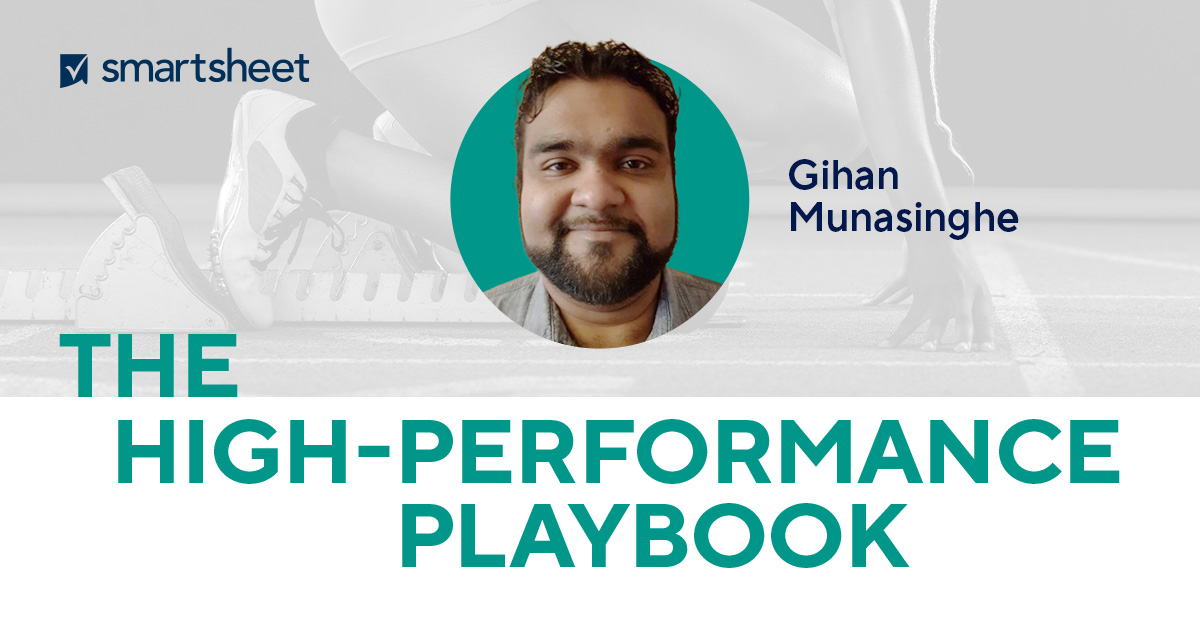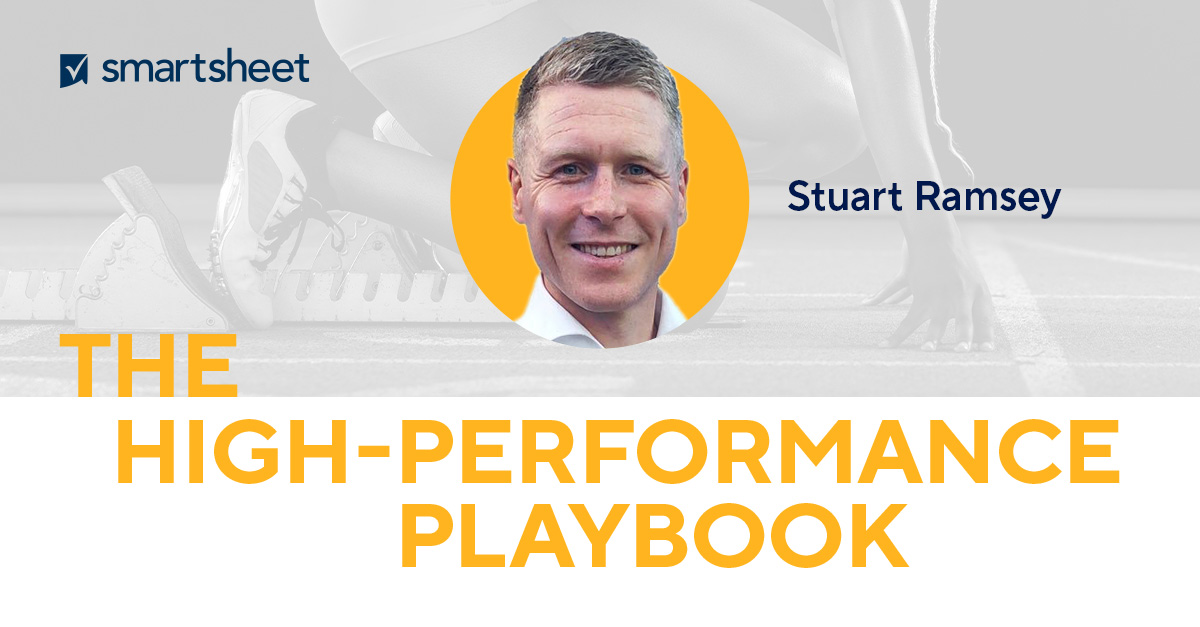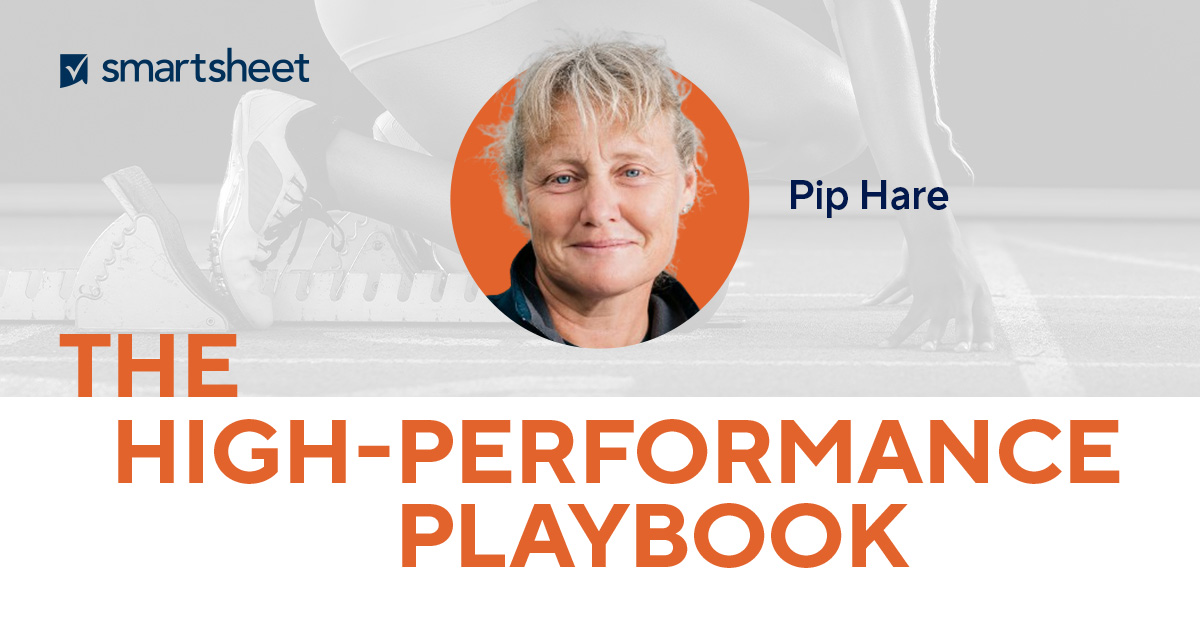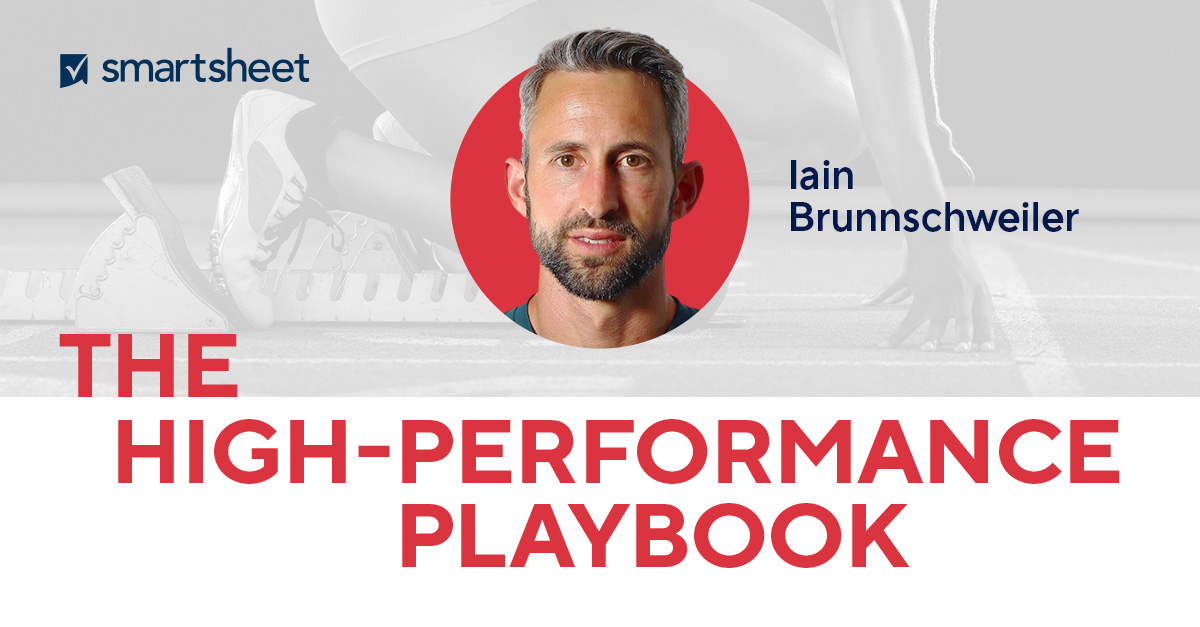Ex rugby player for Sri Lankan Junior team and Smartsheet’s Senior Vice President of Engineering Gihan Munasinghe gives us his thoughts on the markers of high performance.
What does “high performance” mean to you?
High performance is professionalism. Regardless of whether you're in sports or industry, professionalism comes first.
It’s factored into everything. You need basic skills — whether that’s catching a ball or programming language — but what really matters is how you apply that skill to the situation. It’s also the ability to analyse and react to achieve the most successful outcome quickly. You can have the best laid plans and have the best practice sessions, but what makes the difference is how you use your knowledge and skills to handle the situation in front of you. That, for me, is high performance.
Of course, no one can perform at 120 percent all the time — both players and coaches need to understand this. Everything is outcome-driven: A high performing rugby team wins 95 percent of its matches. And it’s the same thing at Smartsheet. While of course it’s less clear-cut for businesses, at any given time, we would aim to achieve 95 percent of our goals.
It’s important to conduct self-reflection, and create a matrix of success tracking to be able to assess what you need to meet your goals. It’s an ongoing cycle of improvement. Everyone in the team needs to buy into a learning mentality. You won't always be able to be perfect the first time — and it’s important to learn from every failure.
What factors have limited “high performance” for you in the past?
If you look at most top players, they’ll have learnt the basics at a very young age. (Huge kudos to the coaches for building a fun environment to teach those basic skill sets.) Once you reach the next stage, you learn how to apply the skills you’ve learnt to a real-life scenario.
For a professional team, discipline is a key factor: How you act, how you treat your body.
Recovery is also key in both business and sports. We can’t all work at the same rate all the time. There are some “superhero” players, and sometimes teams rely heavily on those players to take them through — but they can’t do that all the time. I’ve seen a lot of semi-professional teams that rely on a star player to win the game, but everyone has a bad day. Team structures should reflect this collaborative approach, where everyone pitches in, while managers must build in the necessary recovery time.
Could you share an example of a situation where teamwork and collaboration increased performance?
We learn more from our failures than from our successes. As a leader, I encourage talking about failures in wider groups. At Smartsheet, if a system goes down, we conduct post-incident reviews to establish the issue. This then becomes a review document to present to others in the organisation to promote collaboration and learning between teams. We also use design reviews, in which the designers seek feedback from engineers.
How can leaders best facilitate collaboration?
The most important thing that coaches can say is: ”You can only win as a team. Not as individuals.”
It’s also crucial to consider how to work together to bring the team forward. The coach needs to work out how to structure the team so that members complement each other, rather than trying to outperform each other.
At Smartsheet we’re a single unit, and we try to communicate really clearly so that everyone can complement each other’s strengths and weaknesses. Social interactions — such as time in the office or team bonding exercises — really help because, at the end of the day, we’re all people.
What role does or can technology play?
Monitoring and telemetry in our systems have helped our teams to achieve high performance. This enables you to distinguish between motion and velocity. Sometimes you can feel like you’re doing a lot of work, but you’re not moving. So, people are busy and frustrated, but not moving forward. Telemetry tools help to power productivity by identifying the real problems.
Beyond “winning,” what other benefits come from being a part of a high-performance team?
In a high-performance team, I feel like I can always learn. Teams that want to learn can drive each other and grow. Not knowing everything is actually a good thing; a willingness to learn is how you can move forward.



